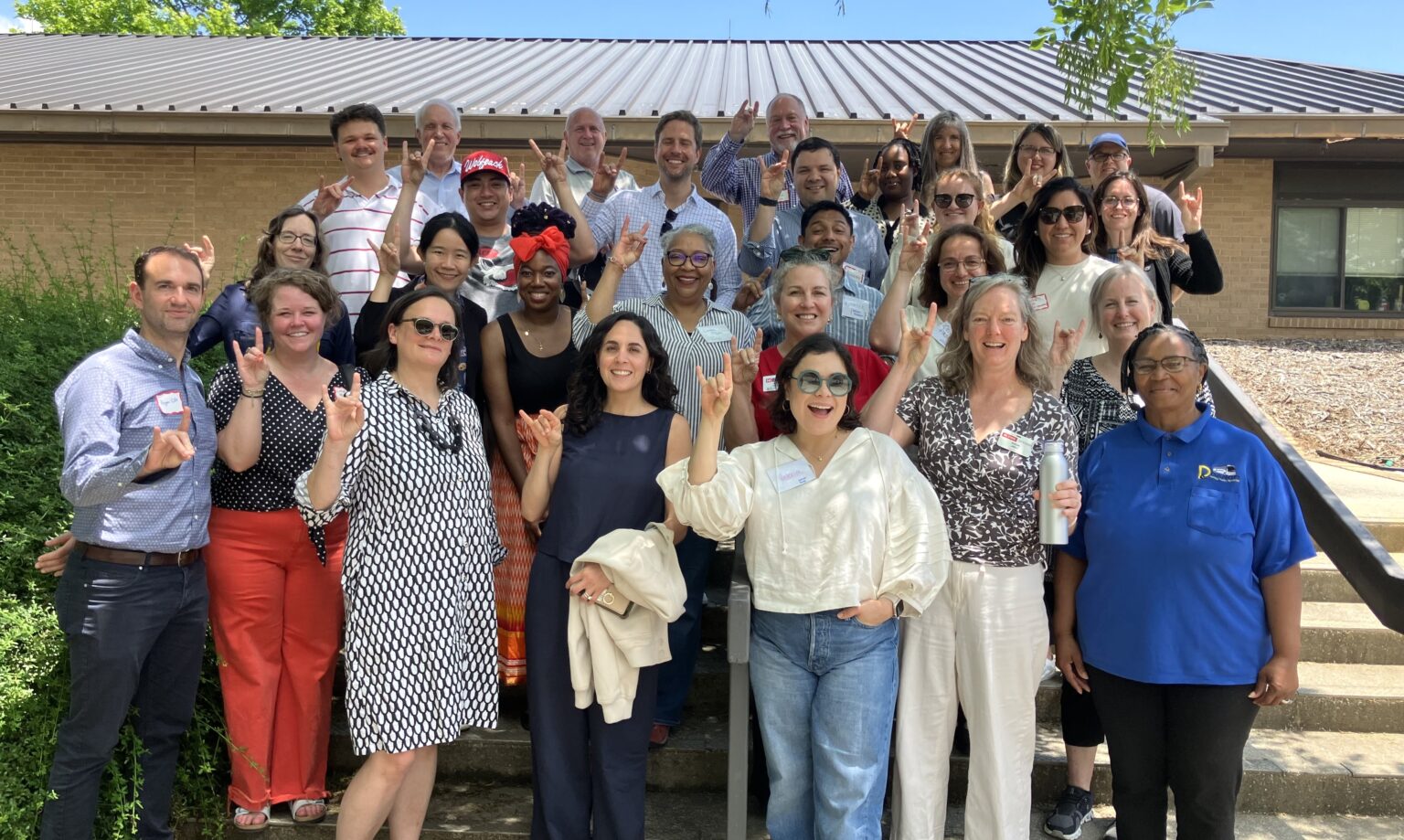NC State Student Wins Forbes 30 Under 30

By Sarah Stone
A Wilson College of Textiles student is one of this year’s winners of Forbes 30 Under 30 list for 2023.
Ritika Shamdasani shares the honor with her older sister, Niki. The two are co-founders of Sani, a South Asian-inspired formalwear and loungewear brand.
“One of our goals for Sani has always been to make South Asian clothing a part of mainstream fashion. We want our clothing on mainstream platforms and widely recognized by everyone, not just South Asians,” Ritika says. “We want people to know there is much more to South Asian clothing than a saree.”
Neither of the siblings envisioned themselves leading a quickly growing fashion brand celebrated by Mindy Kaling and other celebrities. In fact, Ritika first enrolled at NC State intending to major in computer science. Now she’s a senior in the Wilson College’s fashion and textile management program, concentrating in fashion development and product management.
Applying Think and Do to the Fashion World
It was a problem-solving mindset, not a dream of becoming a fashion designer, that led the Shamdasanis to found Sani. The sisters found it nearly impossible to find attire to wear for an upcoming Indian wedding in the United States.
The two spent the summer coming up with a solution. They tested 15 pieces, did some research, and found there was immense demand for these products.
“What we ended up realizing is a lot of first-and-second-generation South Asian Americans were settling for a subpar experience and subpar designs,” Ritika says. “In fact, 82% of them waited to go abroad to shop for their cultural clothing, but they would spend on average, like $315 a year on this type of attire.”

They took that as a sign and continued to grow. In 2020, they became the first South Asian brand to sell apparel on Rent the Runway. Their products sold out within 48 hours.
Then the pandemic hit, and like the rest of the business world, they were forced to pivot, so they went to Tik Tok. There, they found a community of over 100,000 people.
“They really wanted to participate in the culture in a way that no fashion brand had let them because you only really wear like Indian clothes to an Indian wedding, but there wasn’t a fashion brand that was bringing that South Asian influence into everyday clothes,” Ritika says.

Through this social media initiative, they not only formed a greater connection with their customers, but also expanded their brand into loungewear.
“This loungewear was inspired by a Sangeet, which was part of an Indian wedding, and it had embroidered motifs on it,” Ritika says. “Every batch we have released has sold out.”
Using NC State Resources to Expand
Another way Ritika and Niki decided to adapt during the pandemic was by using the “down time” to build new skills. They enrolled in the Andrews Launch Accelerator, part of the Poole College of Management, in 2020.
“Throughout that program, I really appreciated the focus on fundamentals,” Ritika says. “Focus on the core of what makes up your business before thinking too broadly about the future because the future continuously changes.”
Ritika has also been involved with the Centennial Campus’ Entrepreneurship Garage throughout her time as a student.
“One of the best parts of the department is that it brings together students from all disciplines – textiles, engineering, agriculture and more,” Ritika says. “There are always so many networking and mentorship opportunities that can help you whether you want to talk about how to execute an idea or find a collaborator or figure out how to improve your business.”
While Ritika may have chosen to transfer to the Wilson College of Textiles for the curriculum, she says she community and education experienced through the college outside of the classroom has proved just as valuable.
“While growing Sani, The Wilson College of Textiles has been nothing but supportive. That includes the world class faculty who have become close mentors all the way to my peers who truly are willing to help with any part of the brand, from packing orders to offering opinions on what color a new Sani product should come in,” Ritika says. “Being in school while running this brand definitely isn’t easy but I think about how hard it would be to run a business without a caring support system like this one. I am constantly in awe of the people that make up this college and they push me to always try and do better.”
She’s also found lifelong friends through her involvement with the Delta Gamma sorority and Fraternity and Sorority Life at NC State.
“Being a part of this sisterhood has already taught me some incredible lessons, and I am so proud to be a part of an amazing group of women leaders,” Ritika says. “Running a sorority is like running a business, and our chapter does an incredible job of appreciating everyone’s individual contributions. They value every member’s feedback and know that understanding each person’s strengths makes for a stronger chapter.”
The Park Scholar says it’s the diversity of her NC State experience that has made the biggest impact on her career.
“My experiences and the people at NC State in and out of the classroom continue to push me to be better, and have contributed not only to Sani but to the person I am today.”
This post was originally published in Wilson College of Textiles News.


